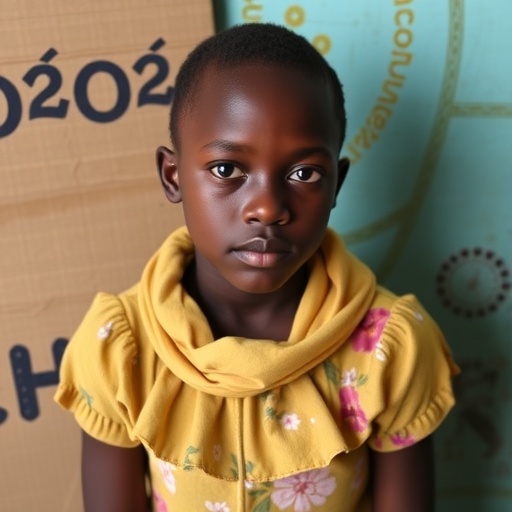The COVID-19 pandemic has significantly altered the landscape of global health, inadvertently spotlighting the vulnerabilities of specific demographics, particularly those with chronic illnesses. A recent study by Ninnoni and colleagues extensively investigates the intersection between mental health challenges, coping strategies, and the acceptance of COVID-19 vaccines among chronically ill patients in tertiary health settings in Ghana’s Central Region. As health organizations and policymakers strive to promote vaccine uptake, understanding the underlying factors influencing this demographic’s engagement with vaccination becomes imperative.
Chronic illnesses encompass a broad spectrum of health conditions requiring ongoing medical attention and management. These illnesses often predispose individuals to socioeconomic hardships, which can be exacerbated by widespread trauma and uncertainty during public health crises such as the COVID-19 pandemic. The study highlights how the elevated stress and anxiety levels among chronically ill patients, driven by fears of infection and illness severity, have the potential to complicate their mental health status. Such conditions may prompt individuals to either seek preventive measures like vaccinations or, conversely, avoid healthcare settings due to anxiety surrounding exposure to COVID-19.
The authors meticulously explore coping mechanisms employed by individuals facing chronic health issues during the pandemic. Understanding these mechanisms is critical, as they heavily impact the decision-making process regarding vaccination. Many patients resort to various strategies—ranging from social support networks to mental health services—that help them navigate their fears and uncertainties. The study posits that those who engage actively with mental health resources or support groups exhibit a heightened acceptance of the COVID-19 vaccine, suggesting that mental health infrastructure could significantly influence vaccination rates.
Delving deeper into the mental health issues surfacing during the pandemic, the research underscores the importance of psychological wellbeing. Instances of depression and anxiety have surged as chronic patients grapple with feelings of isolation aggravated by the pandemic’s restrictions. The compounded challenges of managing their conditions while dealing with the fears surrounding COVID-19 create a precarious balance that necessitates intervention. This revelation brings forth an urgent call for mental health initiatives tailored specifically for vulnerable populations to foster resilience and promote healthy coping strategies.
Moreover, the study reveals that misinformation and pervasive stigma surrounding vaccines further complicate these patients’ decision-making processes. Instances of vaccine hesitancy—a phenomenon characterized by reluctance or refusal to vaccinate despite the availability of vaccination services—are fueled by an amalgamation of fear, distrust, and inadequate health education. The research indicates a strong need for community engagement initiatives that aim to dismantle misinformation and promote factual, accessible information addressing vaccine safety, especially within populations with chronic health concerns.
Importantly, the study outlines how healthcare professionals can play a pivotal role in shaping vaccine acceptance among chronically ill individuals. By creating a supportive environment where patients feel heard and validated, clinicians can alleviate fears and reinforce the importance of vaccination. Training healthcare workers to address mental health challenges alongside chronic illness management emerges as a vital component in promoting overall patient wellbeing and healthcare outcomes.
Furthermore, the findings suggest that engaging chronically ill patients in shared decision-making about their health—including vaccination—can enhance their sense of agency and encourage proactive health management. When patients are involved in discussions about their treatment options, they are more likely to trust healthcare providers and adhere to recommendations, including vaccination.
The implications of this study extend beyond the immediate context of the COVID-19 pandemic. It brings to light the critical intersection between mental health and chronic illness management. Effective integration of mental health services within chronic illness frameworks can result in better health outcomes not just during public health emergencies but also in everyday healthcare settings. This approach promotes a holistic view of patient care, considering the multifaceted nature of health.
In closing, this research serves as a clarion call for public health officials and stakeholders to prioritize mental health support, especially in the wake of persistent global crises. By addressing mental health issues head-on and creating a supportive healthcare environment, we can foster greater vaccine acceptance and ensure that vulnerable populations receive the care they need. As we forge ahead in navigating the long-term impacts of the COVID-19 pandemic, the lessons drawn from this study should inform future health initiatives aimed at bolstering resilience and combating health disparities among chronically ill patients.
In summary, bridging mental health resources with chronic illness management is critical to empowering patients, ensuring that they are equipped to navigate the health challenges posed by both their conditions and global health crises. This holistic approach should be a cornerstone of future healthcare strategies, ultimately leading to enriched patient outcomes and healthier communities.
Subject of Research: Mental health issues, coping mechanisms, and COVID-19 vaccine acceptance among chronically ill patients
Article Title: Mental health issues, coping mechanisms, and COVID-19 vaccine acceptance among chronically ill patients in tertiary health facilities in Central Region, Ghana.
Article References:
Ninnoni, J.P.K., Commey, I.T., Harmah, E.B. et al. Mental health issues, coping mechanisms, and COVID-19 vaccine acceptance among chronically ill patients in tertiary health facilities in Central Region, Ghana.
Discov Ment Health 5, 119 (2025). https://doi.org/10.1007/s44192-025-00241-2
Image Credits: AI Generated
DOI: 10.1007/s44192-025-00241-2
Keywords: COVID-19, chronic illness, mental health, vaccine acceptance, coping mechanisms, health disparities, healthcare strategies.




